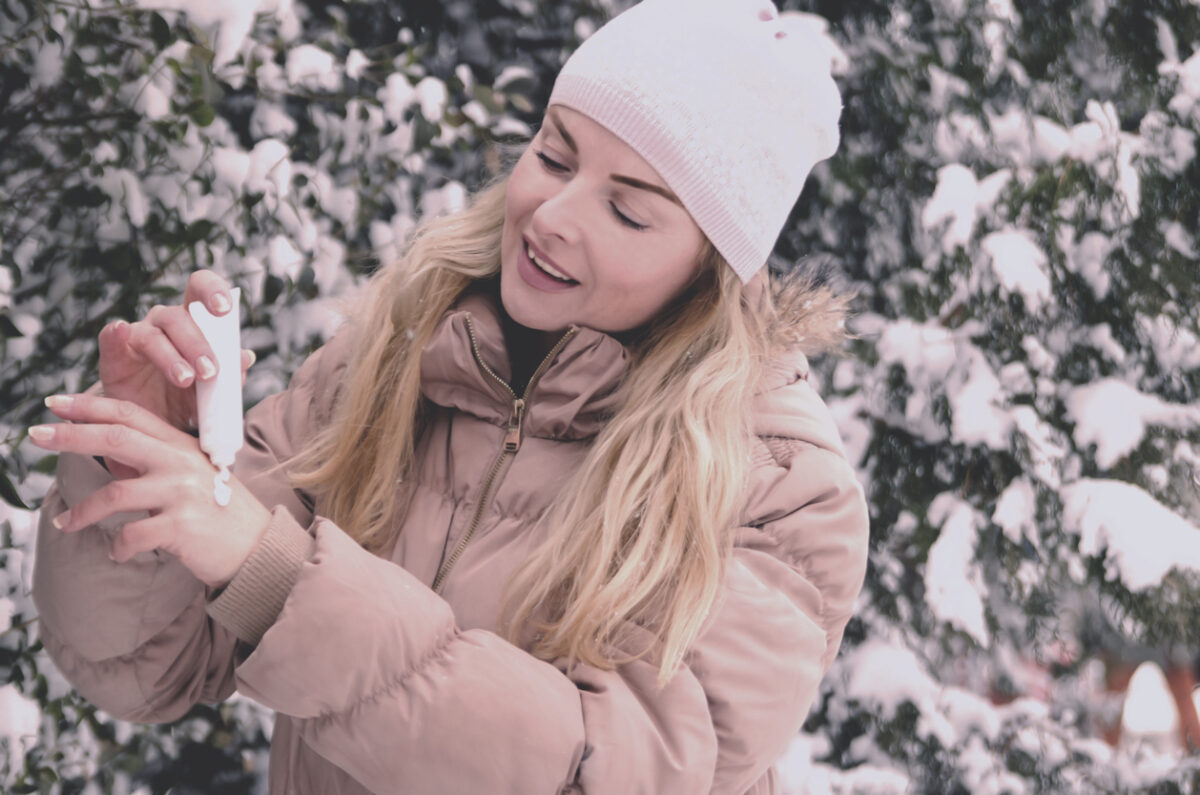Why Does Skin Dry Out in Winter?
The Science of Winter Dryness
Cold air holds less moisture, which leads to low humidity both outdoors and indoors. This lack of moisture pulls hydration from the skin, causing dryness, flakiness, and irritation. Additionally, indoor heating systems worsen the problem by stripping even more moisture from the air.
The Role of the Skin Barrier
Your skin’s outer layer, the stratum corneum, acts as a barrier to retain moisture. In winter, this barrier weakens due to constant exposure to cold air and drying indoor heat, leading to itchiness and increased sensitivity. Preventing dry skin in winter starts with protecting and strengthening this barrier.
The Importance of Hydration for Healthy Winter Skin
Drinking Water Isn’t Enough
While staying hydrated internally is crucial, it’s often not sufficient on its own. The skin needs topical hydration to retain moisture in its upper layers. Incorporate both methods to combat winter dryness effectively.
Foods for Hydrated Skin
Eating water-rich and omega-3 fatty acid-rich foods like cucumbers, salmon, and walnuts can help maintain moisture levels. These nutrients support your skin from the inside out. (For more food ideas, check out this guide).
Hydration Tips:
- Drink 8–10 glasses of water daily.
- Use a humidifier in your home to keep indoor air moist.
- Apply a hydrating serum containing hyaluronic acid before moisturizing.
Best Moisturizers for Winter: What to Look For
Ingredients That Work
A good winter moisturizer should include:
- Humectants: Attract moisture (e.g., glycerin, hyaluronic acid).
- Emollients: Soften and smooth skin (e.g., shea butter, squalane).
- Occlusives: Seal in moisture (e.g., petroleum jelly, dimethicone).
How to Apply Moisturizer
Apply immediately after showering or washing your face while the skin is still damp. This helps trap water on the surface. Use a richer cream at night for deeper hydration.
Product Recommendations
Look for dermatologist-approved products with minimal fragrances to avoid irritation. (See this list of dermatologist-recommended moisturizers).
Lifestyle Changes to Prevent Winter Dryness
Optimize Your Environment
- Humidifiers: Increase indoor humidity to protect your skin barrier.
- Thermostat Settings: Keep the temperature moderate to avoid overly dry air.
Avoid Common Pitfalls
- Hot Showers: These strip oils from your skin. Opt for lukewarm water instead.
- Overwashing: Use gentle cleansers, and avoid soap-based products.
Dress Smart
Wear gloves, scarves, and breathable fabrics to minimize exposure to harsh winter conditions.
DIY Remedies for Dry Skin Relief
Oatmeal Baths
Oatmeal contains anti-inflammatory properties that soothe itchy, dry skin. Add a cup of colloidal oatmeal to a warm bath for relief.
Honey Masks
Honey is a natural humectant and antibacterial agent. Apply a thin layer to your face for 10–15 minutes, then rinse with warm water.
Coconut Oil
Coconut oil locks in moisture and soothes irritation. Massage a small amount onto your skin before bedtime.
Aloe Vera
Aloe vera gel hydrates and heals dry patches. Use a pure product to avoid added irritants.
Conclusion
Preventing dry skin in winter involves understanding the factors that contribute to it and taking proactive measures. By hydrating internally, using the right products, and making small lifestyle changes, you can maintain smooth, healthy skin all season long. For more tips, explore this comprehensive winter skin care guide.
Balance Your Hormone and Take Care of Your Skin from Within
Hormonal balance is one of the keys to keep up your whole body condition including your skin health. Juveriente®’s Effisoy, launched in 2016, brings you the essence of Japanese women’s health. Some clinical researches have reported that Japanese women have far lighter menopause experience. One of its key is Miso, fermented soy paste. It is a commonsense in Japan.
Fermented foods are often hard to eat for people of other dietary cultures. But you can take the essence easily through the supplement. Effisoy is the only supplement brand to bring you fermented soy extract outside Japan. This is only natural food, and we don’t call it “therapy,” but it may be your answer to how to treat menopause depression naturally.
Here are some of the real product reviews in our Amazon shop.
“Restful sleep finally!!”, “I Am Now Free of Hot Flashes!!”, “Lifesaver”



